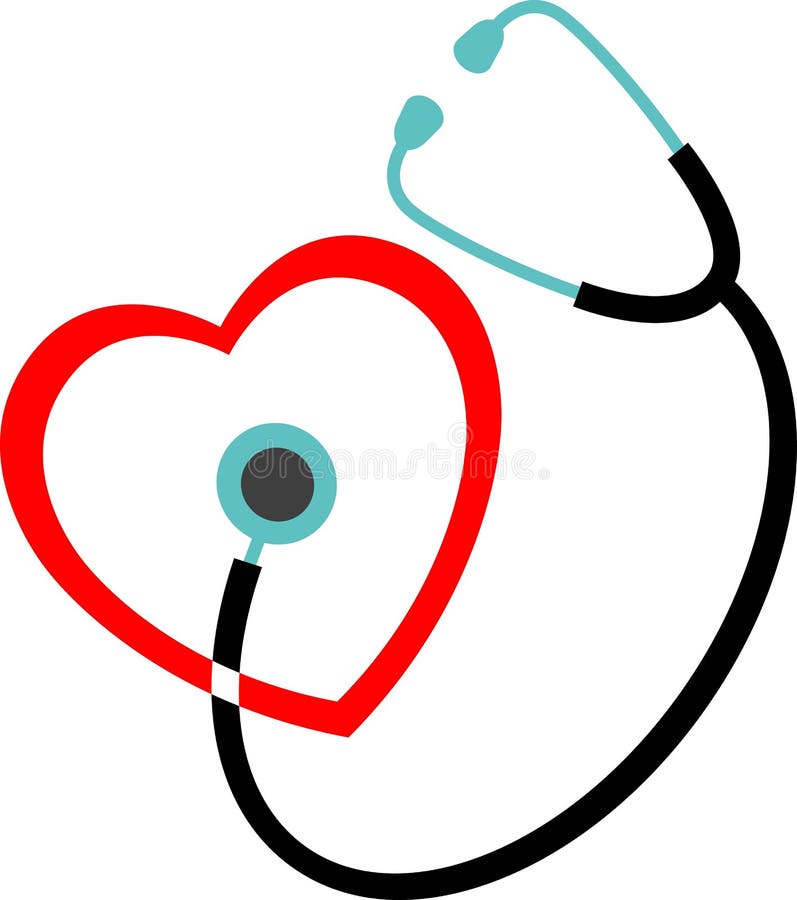The Role of Cardiology in Preventative Health and Wellness Services
Cardiology is progressively identified for its crucial function in preventative health and wellness and health services. By highlighting positive methods, cardiologists aim to decrease the incidence of cardiovascular conditions. This approach incorporates threat analyses, lifestyle changes, and regular testings. Through these efforts, individuals are urged to take control of their heart health and wellness. Nonetheless, the integration of modern technology and cooperation with various other doctor increases crucial questions concerning the future of preventative care. What might this development require?

Recognizing Preventative Cardiology
Comprehending preventative cardiology includes acknowledging its crucial role in lowering cardio condition threat via positive actions. This branch of medication stresses the value of lifestyle modifications, including workout, diet, and tension administration, to avoid heart-related issues prior to they arise. It advocates for normal health and wellness screenings and education to encourage people in making educated health choices.Preventative cardiology likewise encompasses the recognition of danger variables such as hypertension, diabetes, and high cholesterol, urging people to adopt much healthier routines - Cardiology. By focusing on avoidance as opposed to response, this technique not only boosts specific health outcomes yet also relieves the general burden on medical care systems. On top of that, it advertises partnership amongst health care suppliers, clients, and areas, cultivating a holistic technique to heart wellness. Ultimately, recognizing preventative cardiology inspires a shift towards a proactive way of thinking, prioritizing long-lasting wellness and health
Risk Analysis and Management
Risk assessment is necessary in identifying cardiovascular dangers that can cause significant health and wellness problems. Efficient monitoring of these threats typically includes carrying out way of living alteration approaches, such as improved diet and enhanced exercise. By understanding and attending to these aspects, people can considerably minimize their chance of creating cardio conditions.
Determining Cardiovascular Threats
Although numerous factors add to cardio wellness, recognizing cardio dangers is vital for effective prevention and management. Cardiovascular risk analysis entails reviewing different aspects, including family members history, gender, way of life, and age routines such as smoking cigarettes and physical lack of exercise. In addition, wellness problems like hypertension, diabetic issues, and high cholesterol substantially affect a person's risk account. Healthcare specialists utilize tools such as threat calculators and biomarker examinations to measure these dangers and stratify people accordingly. Early identification enables targeted interventions, directing individuals towards suitable management approaches. By identifying these risks, cardiologists can work together with people to create tailored plans that emphasize tracking and positive care, ultimately lowering the likelihood of negative cardiovascular events.
Way Of Life Adjustment Strategies
Effective lifestyle modification methods play a necessary function in managing cardio health and wellness and alleviating associated risks. These methods include nutritional modifications, raised physical task, and smoking cessation. A heart-healthy diet plan rich in fruits, vegetables, whole grains, and lean healthy proteins can significantly decrease cholesterol levels and high blood pressure. Regular exercise, such as aerobic exercises, reinforces the heart and improves blood circulation. In addition, stopping smoking minimizes the threat of heart disease and improves total health. Healthcare specialists typically utilize threat evaluation devices to customize these modifications to private demands effectively. By integrating way of living become regular treatment, cardiologists can equip clients to organize their heart wellness, ultimately resulting in boosted end results and decreased health care expenses.
Way Of Living Adjustments for Heart Health
To keep optimal heart health, individuals need to embrace a variety of way of living modifications that greatly reduce the likelihood of heart diseases. A well balanced diet regimen rich in fruits, veggies, whole grains, and lean healthy proteins is necessary. Lowering hydrogenated fats, trans fats, and salt intake can significantly lower cholesterol degrees and high blood pressure. Routine physical task, such as vigorous walking or cycling for at the very least 150 mins weekly, additionally plays a considerable role in strengthening the heart and improving circulation.Additionally, taking care of stress and anxiety via strategies like mindfulness and meditation can have a favorable influence on heart health and wellness. Preventing cigarette items and restricting alcohol usage further contribute to a healthier cardiovascular system. Maintaining a healthy and balanced weight is essential, as obesity is a major threat element for cardiovascular disease. By integrating these lifestyle changes, people can foster not only their heart health but likewise their total wellness, bring about an extra energetic and dynamic life.
The Importance of Normal Screenings
Along with way of life adjustments, routine screenings play an important role in maintaining heart wellness and stopping heart diseases. These analyses are considerable for recognizing risk elements such as high blood pressure, high cholesterol, and diabetes, which can cause significant problems if left uncontrolled. Cardiologists recommend routine assessments to keep an eye on heart feature and spot irregularities early, allowing for timely intervention.Screenings, which may consist of blood tests, electrocardiograms, and echocardiograms, offer critical information for individualized treatment plans. This proactive method empowers people to make educated decisions concerning their health, enhancing general health. Furthermore, normal exams cultivate a stronger doctor-patient partnership, urging open discussion regarding heart health problems.
Integrating Technology in Precautionary Care
Accepting technology has changed preventative care in cardiology, using innovative devices that improve person monitoring and involvement. Wearable devices, such as smartwatches and health and fitness trackers, allow people to check their heart rate, activity degrees, and overall health metrics in real-time. These devices not only moved here supply instant comments however likewise facilitate information showing to doctor, permitting timely interventions when necessary.Additionally, telemedicine has actually arised as a famous function in cardiology, enabling remote examinations and follow-ups. This access assures that clients can receive treatment without the obstacles of travel and time constraints. Mobile wellness applications further support preventative procedures by supplying personalized understandings and pointers for medicine adherence, way of life changes, and arranged testings.
Client Education And Learning and Empowerment
Empowerment via education is important in the domain name of preventative cardiology, as notified patients are a lot more most likely to participate in aggressive wellness actions. By comprehending their cardiovascular wellness, patients can make informed choices relating to way of life modifications and adherence to therapy plans. Educational campaigns, including workshops, informative pamphlets, and online sources, serve to enhance person knowledge about threat factors such as high blood pressure, cholesterol degrees, and the significance of normal exercise.Moreover, empowering clients fosters a joint strategy click this site to health and wellness monitoring. When patients know their conditions and the ramifications of their selections, they are much more most likely to take part in discussions with doctor, bring about tailored care strategies. This collaboration not just advertises responsibility but additionally enhances inspiration for preserving a heart-healthy lifestyle (Cardiology care). Ultimately, individual education is a foundation of preventative cardiology, equipping individuals with the devices essential to take fee of their cardiovascular health and wellness and wellness
Working together With Other Healthcare Professionals
Effective individual education and learning lays the foundation for collaborative initiatives amongst healthcare specialists in the field of preventative cardiology. Cardiologists, main care physicians, nutritionists, and psychological wellness experts should work in synergy to enhance client outcomes. By sharing approaches and insights, these experts can produce complete care strategies that resolve both physical and emotional elements of heart health.Regular interdisciplinary conferences foster communication, ensuring that all staff member are educated regarding client development and difficulties. This collaboration assists in prompt interventions and modifications to treatment plans, boosting the effectiveness of preventative measures.Furthermore, integrating technology, such as shared electronic health and wellness records, boosts information ease of access and simplifies coordination initiatives. This holistic technique not only enhances client adherence to lifestyle modifications but additionally encourages people to organize their cardiovascular health. Inevitably, cooperation amongst health care specialists is necessary in advertising a proactive method to cardiovascular disease prevention.
Regularly Asked Concerns
What Is the Difference Between Cardiology and General Healthcare?
Cardiology specializes in identifying and dealing with heart-related problems, while general healthcare encompasses a wider series of clinical services attending to different health issues - Cardiology. Each plays a crucial duty in keeping total health and health
Just how Often Should I See a Cardiologist for Precautionary Care?
The regularity of cardiologist check outs for preventative care differs based on specific threat elements. Normally, yearly assessments are suggested for those with existing problems, while others may require less regular exams based on overall heart health.
Can Tension Impact My Heart Health And Wellness Significantly?
Tension can considerably impact heart health by contributing to hypertension, inflammation, and harmful way of life choices. Individuals experiencing chronic visit their website anxiety may go to raised threat for cardio concerns, necessitating efficient stress administration approaches for far better heart health and wellness.
Exist Particular Heart Disease I Should Understand?
Individuals ought to understand problems like hypertension, coronary artery disease, heart failure, arrhythmias, and valvular heart illness. Identifying these problems early can bring about far better administration and boosted overall heart health and wellness outcomes.

What Are the Expenses Linked With Preventative Cardiology Services?
The costs connected with preventative cardiology solutions can differ significantly. Elements such as area, sort of solution, and insurance protection influence general costs, making it important for individuals to look for in-depth info certain to their circumstances. Through these initiatives, patients are motivated to take control of their heart wellness. It supports for regular wellness screenings and education to empower individuals in making educated wellness choices.Preventative cardiology likewise encompasses the identification of danger elements such as high blood pressure, diabetes, and high cholesterol, prompting individuals to adopt healthier behaviors. In enhancement, it advertises collaboration amongst healthcare providers, communities, and individuals, promoting an alternative technique to heart health and wellness. Normal physical task, such as brisk strolling or biking for at least 150 mins per week, also plays a considerable function in strengthening the heart and improving circulation.Additionally, managing tension through methods like mindfulness and reflection can have a favorable influence on heart health. Cardiology specializes in detecting and dealing with heart-related conditions, while basic wellness treatment incorporates a broader array of medical solutions addressing numerous health and wellness problems.